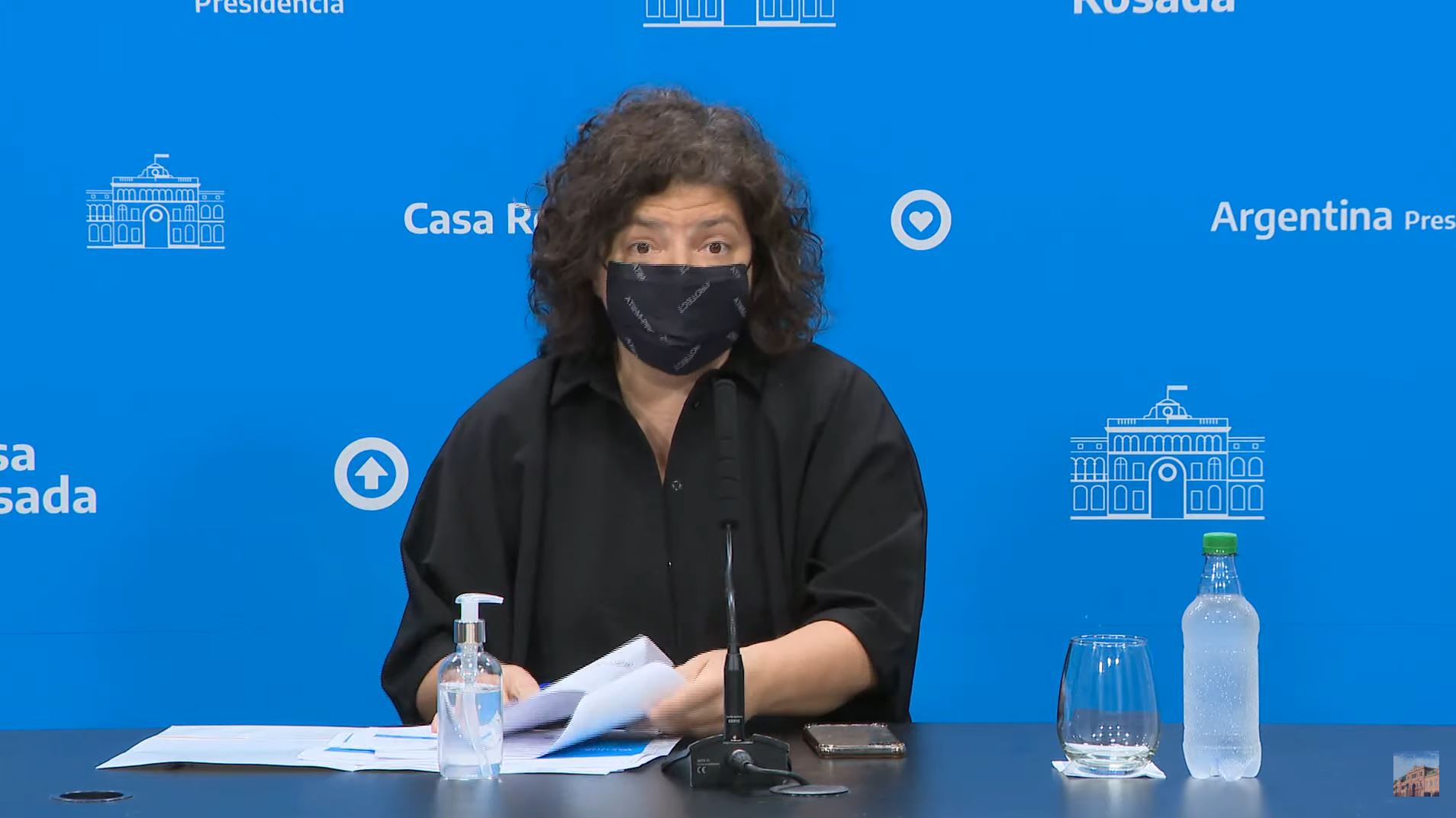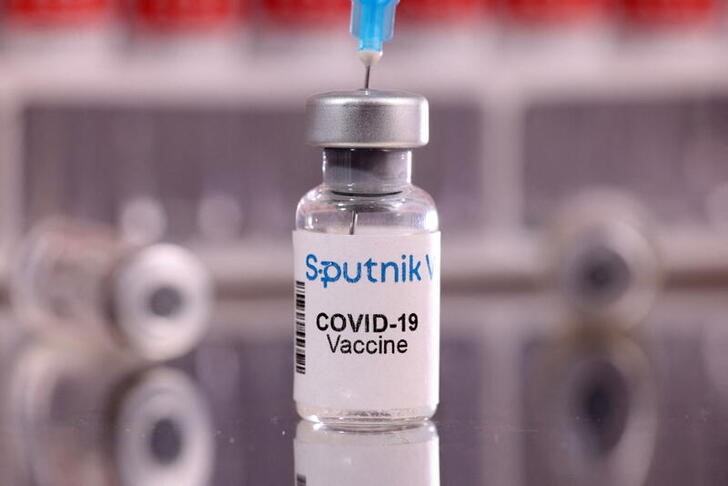
The Ministry of Health of the Nation reported this Thursday, March 17, 2022 that, in the last 24 hours, 29 deaths from coronavirus and 4,577 new infections were recorded. With these data, the cumulative total number of cases since the beginning of the pandemic is 8,990,413, while deaths total 127,363.
This morning, the Minister of Health of the Nation, Carla Vizzotti, reported that the health authorities decided to allow the application of a fourth doses against COVID-19 with any of the vaccines approved by the World Health Organization (WHO) to people who need to travel and have completed their schedule with the Russian-origin Sputnik V inoculant, not yet endorsed globally.
“People who have to travel abroad and need a qualified vaccine must present the ticket and justify it on personal, family, humanitarian, work, study, religious or recreational reasons,” the minister said.
According to Vizzotti, the country is in contact with the World Health Organization (WHO) and the progress achieved was enormous. “The Gamaleya Institute and the Russian Federation submitted more than 800 documents. The inspection visit was scheduled and the situation related to the war just happened and was postponed. What was postponed is that WHO can carry out the evaluation to include Sputnik on the emergency list,” explained the official in dialogue with Radio Con Vos.

According to the minister, this situation “causes a complication with travel” for people who received two or three doses of the Russian vaccine.
“We have just finished a meeting endorsing the application of the fourth dose to people who need to travel,” he said, as they have been complicated by “a problem that is not sanitary, it is a problem that countries decide not to approve a vaccine that has proven efficacy, effectiveness and safety, but people don't is to blame.”
“From Argentina, as we have a stock of vaccines, so that all those who have to start or complete the scheme and receive the reinforcement, we are enabling the dose enabled by WHO so that they can travel,” Vizzotti stressed. In other words, those who have received two or three doses of Sputnik V, even if they are not in the group eligible for the fourth dose, may receive it if they justify the need to move abroad, to a destination that does not accept the inoculant developed by the Gamaleya Institute.

On the other hand, a new shipment of 216,000 pediatric doses of COVID-19 vaccine from the Pfizer laboratory arrived at Ezeiza International Airport this morning. Another shipment will be added to this shipment on Saturday, March 19, another shipment with 1,746,000 doses of Moderna, so this week the country will incorporate 1,962,000 vaccines from different laboratories suppliers to continue responding to the pandemic.
Thus, Argentina will have received 116,420,525 doses since the start of the Strategic Plan for Vaccination against SARS-CoV-2. Of that total, 14,683,210 correspond to Sputnik V (10,490,055 doses of component 1, and 4,193,155 of component 2), and 6,296,125 to Sputnik V produced in Argentina by the Richmond laboratory (1,634,875 of the first component, and 4,661,250 of the second).
Meanwhile, 20,080,710 correspond to Pfizer and 1,080,000 to Pfizer pediatric; 31,672,800 to Sinopharm; 29,643,700 to AstraZeneca; 11,259,980 to Moderna; and 1,704,000 to CanSino.
According to data from the Public Vaccination Monitor, Argentina has so far distributed 107,959,090 vaccines, of which 102,876,090 were sent nationwide and 5,083,000 were donated to other countries. Applications total 95,310,114. Thus, 40,535,672 people started their scheme and 36,752,205 completed it, while 3,027,621 people received additional doses and 15,116,629 booster doses.
KEEP READING:
Últimas Noticias
Debanhi Escobar: they secured the motel where she was found lifeless in a cistern

The oldest person in the world died at the age of 119

Macabre find in CDMX: they left a body bagged and tied in a taxi
The eagles of America will face Manchester City in a duel of legends. Here are the details

Why is it good to bring dogs out to know the world when they are puppies



